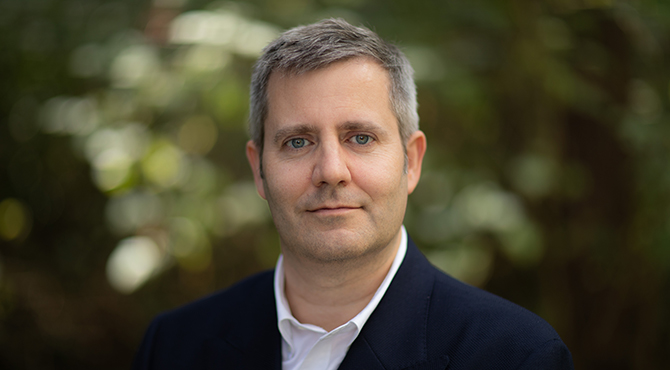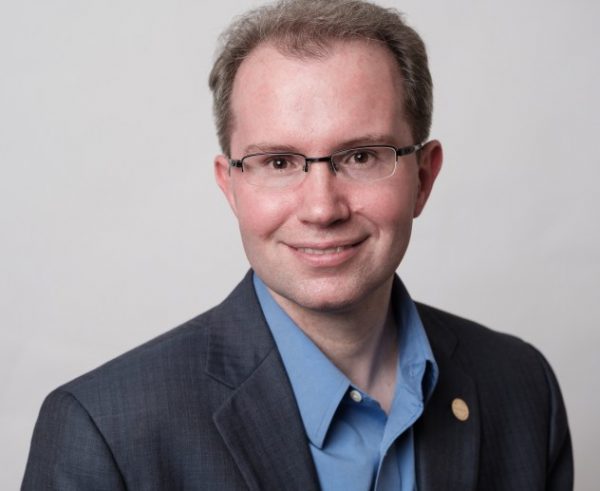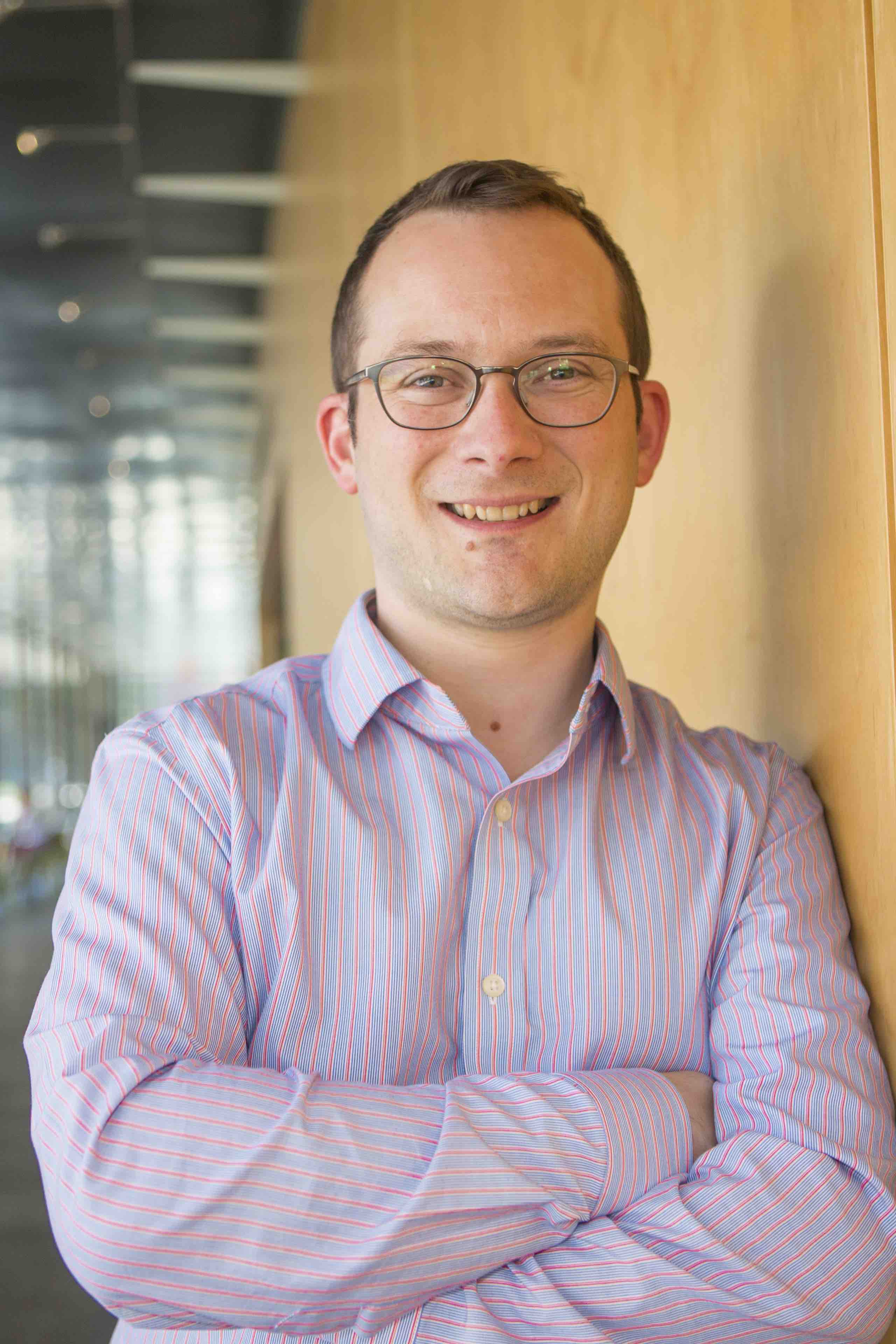
by BGF | Jun 24, 2019 | Uncategorized

Director, Professor of Internet Studies
Philip N. Howard is a statutory Professor of Internet Studies at the Oxford Internet Institute and Balliol College at the University of Oxford. He has courtesy appointments as a professor at the University of Washington’s Department of Communication and as a fellow at Columbia University’s Tow Center for Digital Journalism.
Howard investigates the impact of digital media on political life around the world, and he is a frequent commentator on global media and political affairs. Howard’s research has demonstrated how new information technologies are used in both civic engagement and social control in countries around the world. His projects on digital activism, information access, and modern governance in both democracies and authoritarian regimes have been supported by the European Research Council, National Science Foundation, US Institutes of Peace, and Intel’s People and Practices Group.
He has published eight books and over 100 academic articles, book chapters, conference papers, and commentary essays on information technology, international affairs and public life. His articles examine the role of new information and communication technologies in politics and social development, and he has published in peer review journals such as the American Behavioral Scientist, the Annals of the American Academy of Political and Social Science, and The Journal of Communication. His first book on information technology and elections in the United States is called New Media Campaigns and the Managed Citizen (New York: Cambridge University Press, 2006). It is one of the few books to ever win simultaneous “best book” prizes from the professional associations of multiple disciplines, with awards from the American Political Science Association, the American Sociological Association, and the International Communication Association. His authored books include The Digital Origins of Dictatorship and Democracy (New York, NY: Oxford University Press, 2010), Castells and the Media (London, UK: Polity, 2011), Democracy’s Fourth Wave? Digital Media and the Arab Spring (New York, NY: Oxford University Press, 2012, with Muzammil Hussain), and most recently Pax Technica: How the Internet of Things May Set Us Free or Lock Us Up (New Haven, CT: Yale University Press, 2015). He has edited Society Online: The Internet in Context (Thousand Oaks, CA: Sage, 2004, with Steve Jones), the Handbook of Internet Politics (London, UK: Routledge, 2008, with Andrew Chadwick) and State Power 2.0: Authoritarian Entrenchment and Political Engagement Worldwide (Farnham, UK: Ashgate, 2013, with Muzammil Hussain).
Howard has had senior teaching, research, and administrative appointments at universities around the world. He has been on the teaching faculty at the Central European University, Columbia University, Northwestern University, the University of Oslo, and the University of Washington. He has had fellowship appointments at the Pew Internet & American Life Project in Washington D.C., the Stanhope Centre for Communications Policy Research at the London School of Economics, the Center for Advanced Study in the Behavioral Sciences at Stanford University, and the Center for Information Technology Policy at Princeton University. From 2013-15 he helped design and launch a new School of Public Policy at Central European University in Budapest, where he was the school’s first Founding Professor and Director of the Center for Media, Data and Society.
Howard’s research and commentary writing has been featured in the New York Times, Washington Post, and many international media outlets. His B.A. is in political science from Innis College at the University of Toronto, his M.Sc. is in economics from the London School of Economics, and his Ph.D. is in sociology from Northwestern University. His website is philhoward.org, and he tweets from @pnhoward.

by BGF | May 27, 2019 | News

The PAIR project is an initiative of Google to research about AI where human input plays an early role in the learning process of an AI system. According to its website, PAIR is “interested in the full spectrum of human interaction with machine intelligence, from supporting engineers to understanding everyday experiences with AI.”
PAIR provides a guidebook to help build human-centered AI products, which should focus on five aspects:
- User needs + defining success: identify user needs, find AI opportunities, and design your reward function
- Mental models: introduce users to the AI system and set expectations for system-change over time
- Feedback + control: design feedback and control mechanisms to improve your AI and the user experience
- Data collection + evaluation: decide what data are required to meet your user needs, source data, and tune your AI
- Explainability + Trust: explain the AI system and decide if/when/how to show model confidence
- Errors + graceful failure: identify and diagnose AI and context errors and communicate the way forward.
This people-centric approach is fundamentally different from the conventional data-centric approach of machine learning. “Advancing the state of the art in machine learning means thinking beyond narrowly-defined objective functions. It requires weaving user needs and societal values into the design and evaluation of these systems”, said Fernanda Viegas, a Senior Staff Research Scientist on the PAIR team.
Jess Hozbrook, a PAIR lead and one of the creators of the People + AI Guidebook, compares today’s AI with the early days of designing products for personal computing, web, and mobile. “You experiment, your product looks really cool, and then you stumble by building an experience that doesn’t address a real human need or aspiration. We’re reminding people of what we know works, which is to put people first and work from there… If you start with people then any exploration, product design, or research you do will have a fruitful path.”
Putting people first in AI development will change the way we develop AI products. AI designers can harness and humanize AI’s vast potential.
AI World Society (AIWS) is a 7-layer model, in which Ethics is in Layer 2, and create AIWS Ethics Index.

by BGF | May 27, 2019 | News

MIT and the U.S. Air Force have signed an agreement to launch a new program designed to make fundamental advances in artificial intelligence (AI) that could improve Air Force operations while also addressing broader societal needs.
The effort, known as the MIT-Air Force AI Accelerator, will leverage the expertise and resources of MIT and the Air Force to conduct fundamental research directed at enabling rapid prototyping, scaling, and application of AI algorithms and systems. The AI Accelerator research program will aim to develop new algorithms and systems to assist complex decision-making that might help the Air Force, for example, better focus its maintenance efforts — an expensive and critical part of its aircraft operations. The Air Force plans to invest approximately $15 million per year as it builds upon its five-decade relationship with MIT.
The collaboration is expected to support at least 10 MIT research projects addressing challenges that are important to both the Air Force and society more broadly, such as disaster response and medical readiness. The interdisciplinary collaboration and application of AI technology for a better society and human well-being is also highly promoted and supported by AI World Society (AIWS) and Michael Dukakis Institute for Leadership and Innovation (MDI).

by BGF | May 27, 2019 | News
As process industries across the world become more connected, networked, and integrated, there has been a consistent surge in the volume of data generated across the manufacturing value chain. The high-fidelity data that is generated by sensors and other wireless devices, however, currently yields inadequate insights for value creation. This makes a case for digitalizing plant operations in a way that meticulously leverages the plant’s digitized sensor data.

Converging Big Data with Plant Artificial Intelligence
Muthuraman “Ram” Ramasamy, Automation & IIoT Industry Director at Frost & Sullivan said “The industry understands the imperatives of digital, but the challenge resides in the ‘how’ of digital. This will require customers to partner with accomplished domain experts who can not only help structure a digital roadmap but also have strong AI application capabilities over plant data and comprehensive expertise over a manufacturing value chain.”
Yokogawa‘s Synaptic Business Automation — Converging Intelligent Sensing with Plant AI, will assist plant in unpacking the value levers of digital transformation, understanding the power of melding sensing with plant artificial intelligence (AI), and evaluating high-potential application areas. AI technology could provide intelligent sensing and advanced analytics for a smart manufacturing plant. This AI application will substantially supports to the human labor for more efficient operation and better productivity, which has been identified and highlighted by AI Ethics report from Michael Dukakis Institute for Leadership and Innovation (MDI).

by BGF | Jun 24, 2019 | Uncategorized

Professor at MIT’s Electrical Engineering and Computer Science department
Constantinos (or Costis) Daskalakis is a Professor of Electrical Engineering and Computer Science, a member of the Computer Science and Artificial Intelligence Laboratory (CSAIL), and an affiliate of the Laboratory for Information and Decision Systems (LIDS) and the Operations Research Center (ORC). He is also an investigator in the MIT Institute for Foundations of Data Science (MIFODS).
Daskalakis completed his undergraduate studies in Greece, at the National Technical University of Athens, and obtained a PhD in Computer Science from UC Berkeley. He was a postdoctoral researcher in Microsoft Research New England in 2008-2009, and has been with the MIT faculty since 2009.
Daskalakis works on computation theory and its interface with game theory, economics, probability theory, statistics and machine learning.
He has resolved long-standing open problems about the computational complexity of the Nash equilibrium, the mathematical structure and computational complexity of multi-item auctions, and the behavior of machine-learning methods such as the expectation–maximization algorithm. He has obtained computationally and statistically efficient methods for statistical hypothesis testing and learning in high-dimensional settings, as well as results characterizing the structure and concentration properties of high-dimensional distributions.
Daskalakis and his collaborators, Goldberg and Papadimitriou, who was also his PhD advisor, were honored by the Game Theory Society with Kalai Prize for their work on the Computational Complexity of Nash equilibrium. Their same work was honored with the 2011 SIAM Outstanding Paper Prize.
Daskalakis was also the recipient of the 2018 Nevanlinna Prize from the International Mathematical Union, the 2018 Simons Investigator Award, the 2018 ACM Grace Murray Hopper Award, and the 2008 ACM Doctoral Dissertation Award.
Other awards and honors include the 2007 Microsoft Graduate Research Fellowship, the 2010 Sloan Foundation Fellowship, the 2011 MIT Ruth and Joel Spira Award for Distinguished Teaching, 2012 Microsoft Research Faculty Fellowship, and the 2017 Google Faculty Award. He also received the 2006, 2012 and 2013 Best Student Paper Award at the ACM Conference on Economics and Computation, and the 2013 Best Paper Award at the ACM Conference on Economics and Computation.

by BGF | Jun 4, 2019 | Uncategorized

Member of AIWS Standards and Practice Committee, Michael Dukakis Institute
Executive Director, People-Centered Internet coalition
Senior Fellow, Institute for Human-Machine Cognition
Since 2017, Dr. David A. Bray has served as Executive Director for the People-Centered Internet coalition co-founded by Vint Cerf, focused on providing support and expertise for community-focused projects that measurably improve people’s lives using the internet. He also provides strategy to both Boards and start-ups espousing human-centric principles to technology-enabled decision making in complex environments. Business Insider named him one of the top “24 Americans Who Are Changing the World” under 40 and he was named a Young Global Leader by the World Economic Forum for 2016-2021. He also was named a Marshall Memorial Fellow and traveled to Europe in 2018 to discuss Trans-Atlantic issues of common concern including exponential technologies and the global future ahead. He was also named a Senior Fellow with the Institute for Human-Machine Cognition in 2018.
David enjoys creative problem solving. He began working for the U.S. government at age 15 on computer simulations at a high-energy physics facility investigating quarks and neutrinos. In later roles, he designed new telemedicine interfaces and space-based forest fire forecasting prototypes for the Department of Defense. From 1998-2000 he volunteered as a part-time crew lead with Habitat for Humanity International in the Philippines, Honduras, Romania, and Nepal while also working as a project manager with Yahoo! and a Microsoft partner firm. Dr. Bray then joined as IT Chief for the Bioterrorism Preparedness and Response Program at the U.S. Centers for Disease Control and Prevention, leading the program’s technology response to during 9/11, anthrax in 2001, Severe Acute Respiratory System in 2003, and other international public health emergencies. He later completed a PhD from Emory University’s Goizueta Business School and two post-doctoral associateships at MIT and Harvard in 2008.
David likes to be a digital diplomat and a “human flak jacket” for teams of change agents working in turbulent environments. He volunteered in 2009 to deploy to Afghanistan to help “think differently” on military and humanitarian issues and in 2010 became a Senior National Intelligence Service Executive advocating for increased information interoperability, cybersecurity, and protection of civil liberties. In 2012, he became the Executive Director for the bipartisan National Commission for Review of Research and Development Programs of the United States Intelligence Community, later receiving the National Intelligence Exceptional Achievement Medal. He received both the Arthur S. Flemming Award and Roger W. Jones Award for Executive Leadership in 2013. He also was chosen to be an Eisenhower Fellow to meet with leaders in Taiwan and Australia on multisector cyber strategies for the “Internet of Everything” in 2015. He is the author of 40+ academic papers and published publications.
David passions include complicated, near impossible missions involving humans and technology in challenging circumstances. Through the efforts of a team of “positive change agents”, he led the transformation of the Federal Communication Commission’s legacy IT with more than 207 different systems to award-winning tech. This included rolling-out new cloud-based IT that achieved results in 1/2 the time at 1/6 the cost. He was the recipient of the Armed Forces Communications and Electronic Association’s Outstanding Achievement Award for Civilian Government. He also received the global CIO 100 Award twice, which usually is awarded to private sector Fortune 500 companies, both in 2015 and 2017, for his transformational leadership in change-adverse settings.
Dr. Bray’s passions include the Future of Work, Future of Governance, and the Future of Augmented living learning communities that maintain a human focus on collaboration, pluralism, and individual choices. He accepted a role of Co-Chair for 2016-2017 with an IEEE Committee focused on Artificial Intelligence, automated systems, and innovative policies globally and has been serving as a Visiting Executive In-Residence at Harvard University since 2015 and as a Faculty Member giving talks on Impact and Disruption at Singularity University since 2017. He also is President of the non-profit startup Hu-manity.org and serves both on the Data Science Board at the University of Oxford’s Internet Institute as well as on the Boards for select companies in the social and digital transformation space.

by BGF | Jun 4, 2019 | Uncategorized

Member of AIWS Standards and Practice Committee, Michael Dukakis Institute
Associate Professor of Ethics, U.S. Naval War College
Director of Ethics & Emerging Military Technology Graduate Program
Dr. Creely, Associate Professor of Ethics, is Director of Ethics & Emerging Military Technology Graduate Program. Serves on NATO Science and Technology Organization Technical Team. At Brown University Executive Master of Cybersecurity, he is lead for leadership and ethics. Serves The Conference Board Global Business Conduct Council, Association for Practical & Professional Ethics Business Ethics Chair, and Robert S. Hartmann Institute Board.
Research Contributions
Revue Internationale De La Compliance Et LÉthique Des Affaires (International Review of complaiance and Business Ethics) Focus: “Ethics and Emerging Technolog: Understanding the Emerging Threat.”
N ?13-14 Du 30 Mar 2017
Ethics and Technology: A Component to the Third Offset Strategy.
Fall 2016
Northern Plains Ethics Journal
The Impact of Ambient Intelligence Technologies on Individuals, Society and Warfare.
Fall 2016, Vol. 19
The Bridge: The Magazine of the Naval War College Foundation
Contributor to War and Religion: An Encyclopedia of Faith and Conflict (2016)
Santa Barbara: ABC-CLIO Publishers

by BGF | Jun 24, 2019 | Uncategorized

George F. Colony Professor of Computer Science; Harvard College Professor
Parkes leads research at the interface between economics and computer science, with a focus on multi-agent systems, artificial intelligence and machine learning. This is a vibrant field, encompassing questions about market design, dynamic pricing, preference elicitation, digital currency, reputation, and the increasing role that artificial intelligences will play in mediating transactions of all kinds.
Parkes founded the EconCS research group within the Paulson School, and is co-director of the Harvard University Data Science Initiative, and co-chair of the Harvard Business Analytics certificate program and the FAS Data Science Masters. Earlier, Parkes was Area Dean for Computer Science, 2013-2017. He served on the inaugural panel of the “Stanford 100 Year Study on Artificial Intelligence,” co-organized the 2016 OSTP Workshop on “AI for Social Good,” and served as chair of the ACM Special Interest Group on Electronic Commerce (2011-16). Since 2018, Parkes has served on the Computing Community Consortium (CCC) of the Computing Research Association.
Parkes is Fellow of the Association for the Advancement of Artificial Intelligence (AAAI), and recipient of the 2017 ACM/SIGAI Autonomous Agents Research Award, the NSF Career Award, the Alfred P. Sloan Fellowship, the Thouron Scholarship, and the Roslyn Abramson Award for Teaching. Parkes has degrees from the University of Oxford and the University of Pennsylvania, serves on several international scientific advisory boards, and is a technical advisor to a number of start-ups.

by BGF | Jun 24, 2019 | Uncategorized

Liam Byrne is a writer, reformer and campaigner who has been the (Labour) MP for Birmingham Hodge Hill since 2004. A former Cabinet minister he served in the Home Office, No 10 Downing Street and Her Majesty’s Treasury. He is the author of Dragons: Ten Entrepreneurs Who Built Britain; Black Flag Down: Counter Extremism, Defeating ISIS and Winning the Battle of Ideas; and Turning to Face the East.
Liam graduated at the top of his class at Manchester University, winning the Robert Mackenzie prize for political science and the leadership of Manchester Student Union, before going onto to win a Fulbright scholarship to the Harvard Business School where he took his MBA with honours.
After founding a high growth technology start-up, he won the tightly fought Hodge Hill by-election in 2004 and was asked to undertake some of the hardest jobs in government – in the Home Office, Downing Street and HM Treasury, creating the UK Border Agency, reorganising No 10 for Gordon Brown, and drawing up Labour’s deficit reduction plan for Alistair Darling.
In Opposition, Liam has chaired Labour’s policy review, led the Shadow Work and Pensions team, and served as the Shadow Minister for Universities, Science and Skills. Today, he chairs the cross-party think tank on progressive economics, Inclusive Growth and is the Shadow Digital Minister.
Liam has written extensively about economic history, development and foreign affairs. His history of British capitalism Dragons: Ten Entrepreneurs Who Built Britain was published in 2016. He is also the author of Black Flag Down: Counter Extremism, Defeating ISIS and Winning the Battle of Ideas; and Turning to Face the East: How Britain Prospers in the Asian Century.
He is board member of the Great Britain China Centre, and governor of the Institute of Government and lives in Birmingham with Sarah, their children and a highly excitable English pointer.

















